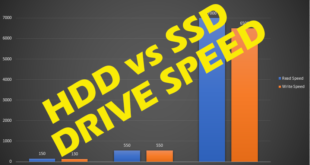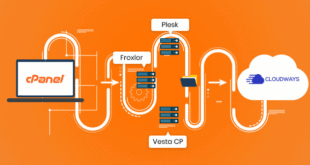Dedicated hosting is the solution of choice for most busy professionals and for good reason – it provides access to a server that is devoted only to your hosting tasks. Adversely, VPS (virtual private server) and shared hosting give you access to a designated server partition, so you have to share a server with many other webmasters. Obviously, this could lead to decreased performance and other issues, but most of the time this is not a problem because hosting companies utilize the cloud hosting environment to allocate tasks efficiently. So, read on this dedicated hosting Vs VPS hosting discussion to gain a greater understanding of the key differences between the two:
Server Environment
The most notable difference between dedicated and VPS hosting is that each dedicated plan is essentially a server rental that gives you remote access to a physical web server in a datacenter, while each VPS plan is simply an assigned partition of a server. In other words, a single server can be used to power one dedicated plan, or many VPS plans. However, VPS hosting can be just as reliable if the company uses cloud computing technology, as this contributes to greater efficiency through proper task prioritization and allocation. With a cloud VPS plan each user has access to the entire network of servers (datacenter) at any given time, and all of the devices work in unison to handle incoming requests in the most efficient manner possible. With a dedicated plan, each server operates separately and is maintained on an individual basis; operating system upgrades, performance monitoring, and automated backups are all included with a dedicated server rental.
Pricing and Features
Both VPS and dedicated plans are available in a variety of sizes and server configurations so prices vary greatly. However, dedicated plans are typically more expensive on a monthly basis because they give the user greater control over server administration. Cloud VPS hosting works by giving each user access to a virtually unlimited amount of server resources (bandwidth, disk space, RAM etc), yet only charges them for the resources used. This is different than conventional VPS hosting, which provides an allocated amount of resources that are paid for at a set monthly rate. Due to their increased memory and processing capabilities, dedicated servers are better for intensive task such as software development, automated software operation, and running large networks of sites that have plenty of media content and high traffic levels.
Reliability and Support
Overall, both types of hosting are equally reliable if you choose a good provider, but a dedicated hosting plan is more capable of accommodating surges in traffic levels than a conventional VPS plan. Even so, a cloud VPS plan may be more preferable than a dedicated plan because of the pay-per-usage rate structure and instant scalability it provides. Dedicated hosting companies usually have backup servers on standby to be used in case of hardware malfunctions. Likewise, VPS providers use advanced monitoring applications to re-assign partitions in order to prevent data loss and ensure redundancy. In terms of support, a managed dedicated plan offers more extensive IT support, as administrators and technicians need to be well-versed in conducting and explaining server administration to customers.
Conclusion
Ultimately, if you’re trying to choose between VPS and dedicated hosting, your decision should be based on whether you need the ability to expand at the drop of dime, and how much traffic your network of sites brings in regularly. Those that demand nothing but the best should opt for a fully managed dedicated plan, while startup businesses should look for an affordable, yet feature-rich VPS plan.
So, this dedicated hosting Vs VPS hosting difference will help you make the better decision for your need.
 Cheapest Linux VPS Home for Cheap Virtual Private Server
Cheapest Linux VPS Home for Cheap Virtual Private Server 


